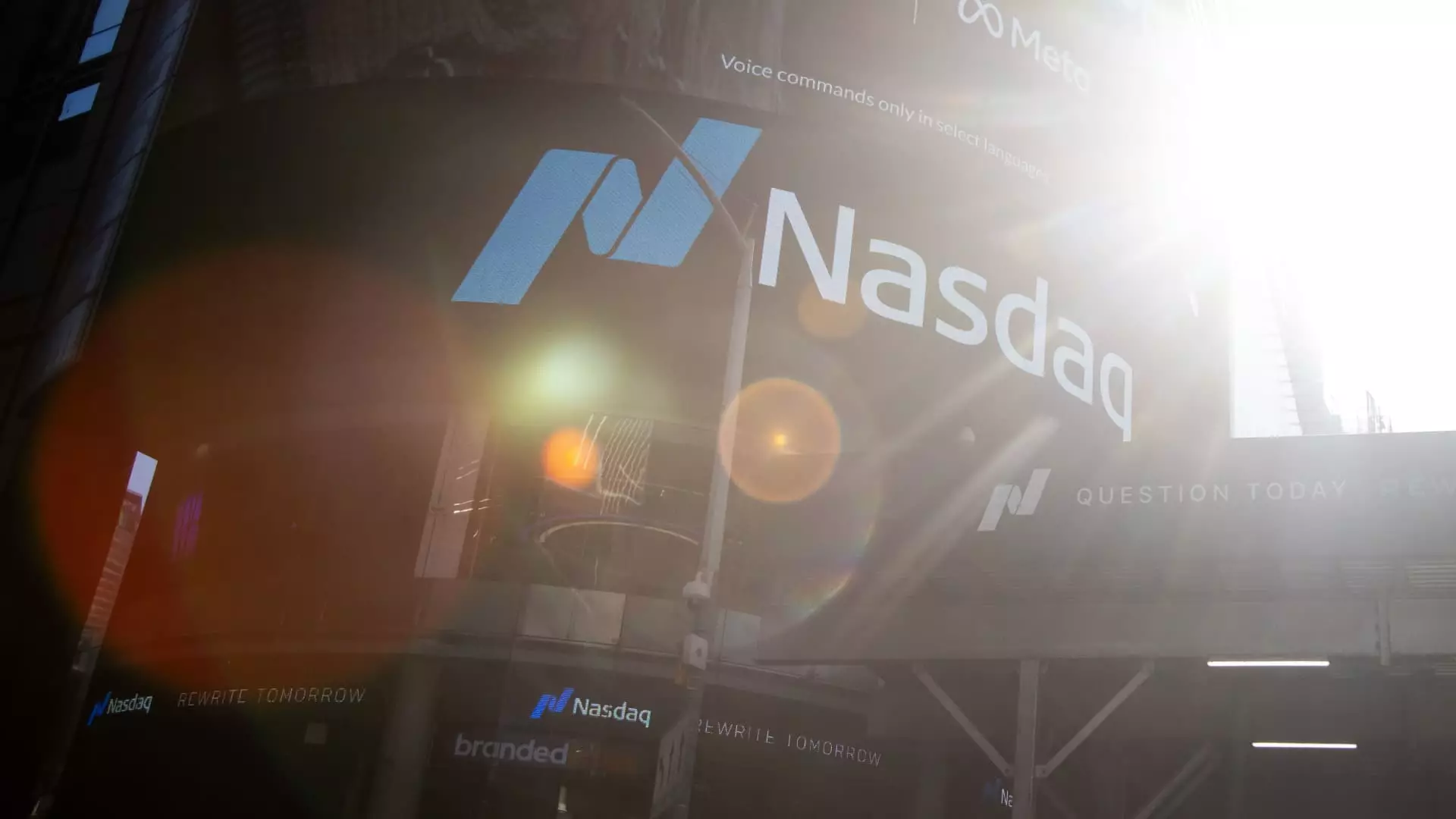In the ever-evolving realm of stock market investing, the latest updates from the CNBC Investing Club led by Jim Cramer reveal an intriguing intermission in the competitive theatre of American finance. With the Dow Jones Industrial Average surging past the significant psychological threshold of 44,000, it serves as a barometer for investor optimism following a politically charged season. However, beneath the surface of this apparent triumph lies a complex narrative of market rotation—wherein capital flows out of traditional tech giants and into sectors that are anticipated to thrive under an incoming administration advocating for pro-business policies.
Investors are drawn to financial institutions and industrial players, which have been enjoying substantial gains. Taking a closer look, companies like Morgan Stanley and Wells Fargo are being heralded as potential record closers in the market, embodying a shift in focus as investors reallocate resources to align with perceived beneficiaries of the anticipated economic policies.
Interestingly, while the broader market segments such as financials and industrials are capturing investors’ attention, the technology sector, represented by behemoths such as Apple, Amazon, Nvidia, Microsoft, and Meta Platforms, is not performing on par with its historical robustness. This phenomenon suggests a strategic redistribution of wealth as investors adjust their portfolios in response to political developments and economic projections.
Despite the recent drop in some tech stocks, these companies remain massive, and their prior dominance may invite questions about whether this shift marks a temporary trend or a longer-lasting pivot away from tech dependence. The implications of this could be far-reaching if pro-business sentiment continues to propel institutional investment towards financials and industrials.
The turbine-like ascent of banks such as Morgan Stanley and Wells Fargo hints at an invigorated appetite for traditional financial services. Concurrently, the momentum within the industrial sector aligns with a thesis that anticipates improvement resulting from deregulation and tax cuts. A notable performance from Club holdings like Honeywell and industrial counterparts like Eaton and Dover underscore this burgeoning confidence.
As we revisit the recent heights attained by BlackRock, highlighted by a marked increase in the inflows into its bitcoin ETF, it becomes evident that investor sentiment is nourishing the availability of capital for growth sectors amidst a backdrop of pro-cryptocurrency rhetoric from influential political figures.
With the S&P 500 hitting near-record highs, there are whispers of positive projections from financial analysts. Oppenheimer’s revision of the S&P 500 forecast from 5,900 to 6,200 indicates strong market belief in continued upside potential before year-end. Yet, this rapid ascent has also triggered signals that may be indicative of an overbought market as shown by the Short-Range Oscillator, which has raised a caution flag for seasoned investors.
Introducing a phase of prudence, market participants have begun to lock in profits—evidenced by Cramer’s decision to trim holdings in Honeywell and partially liquidate positions in Morgan Stanley and Wells Fargo. This measured approach not only highlights a tactical sensitivity to fluctuations but also reinforces the importance of evaluating momentum indicators for optimal trading decisions.
Upcoming Earnings Reports: A Test Ahead
As we approach the reporting season, all eyes will be on major players like Home Depot, which enters this reporting cycle under the scrutiny of market analysts. The anticipated decline in same-store sales signals that the home improvement sector may still be grappling with higher mortgage rates, necessitating a decline to 6% or less to invigorate consumer spending. This impending report will not only reflect Home Depot’s current standing but also offer insight into the lingering demand within the housing sector.
As investors await quarterly results from other key companies, including Shopify, Tyson Foods, and AstraZeneca, the landscape appears set for volatility. The upcoming earnings announcements will undoubtedly shape investor sentiment and market direction.
Navigating today’s market requires a nuanced understanding of not just numbers but the broader economic narrative at play. Investors must stay attuned to shifts in market sentiment, potential earnings surprises, and the overarching influence of political discourse on market candidates. The ability to pivot amidst these dynamic trends will prove vital for achieving long-term financial objectives.

